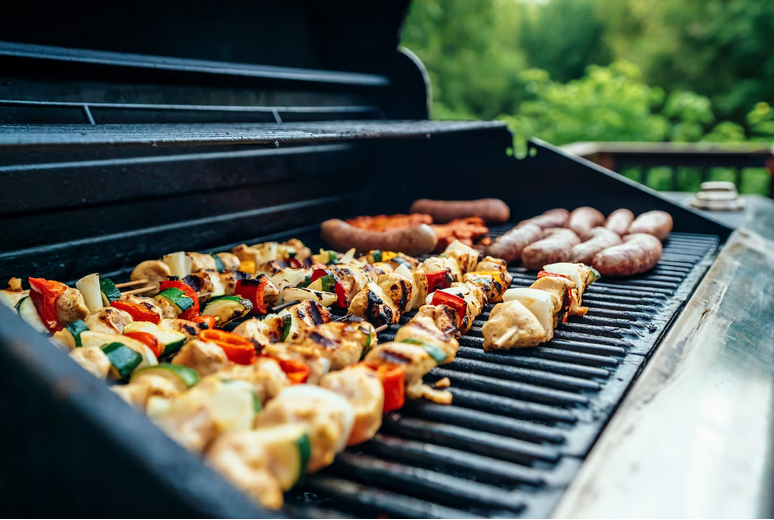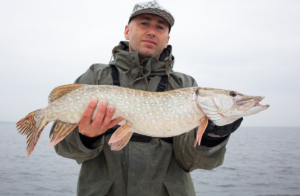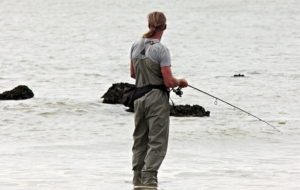
Safety Tips to Consider When Cooking on a Gas GrillSafety Tips to Consider When Cooking on a Gas Grill
Cooking on a gas grill is a convenient and enjoyable way to prepare delicious meals, especially during outdoor gatherings and BBQs. Especially after you read How to Cook on a Gas Grill, you can only hope you achieve the best cooking goals. However, safety should always be a top priority when handling gas grills to prevent accidents and ensure a pleasant cooking experience. In this guide, we’ll explore essential safety tips to consider when using a gas grill.
Read the Manufacturer’s Instructions
Before you start grilling, familiarize yourself with the manufacturer’s instructions for your specific gas grill model. These guidelines provide essential information on assembly, operation, and safety precautions. Failure to follow these guide can lead to accidents or equipment damage.
Set Up the Grill in a Safe Location

Choose a suitable location for your gas grill. It should be on a level and stable surface, away from flammable materials, buildings, and overhanging structures. Ensure there is adequate ventilation, as grilling produces carbon monoxide.
Inspect the Grill Regularly
Perform routine inspections of your gas grill to check for any indications of wear or damage. Look for gas leaks, loose connections, or damaged hoses. Make sure the control knobs are functioning correctly and the burner holes are clear from obstructions. Address any issues promptly before using the grill.
Keep the Grill Clean
Maintaining a clean grill not only enhances food flavor but also prevents grease fires. After each use, scrape off food residue and grease from the grates and interior surfaces. Empty the grease tray regularly and clean it thoroughly. Grease buildup can lead to flare-ups, which can be dangerous.
Always Keep a Fire Extinguisher Nearby
Safety should always come first, so it’s a good idea to have a fire extinguisher nearby when grilling. Make sure it’s suitable for grease fires (Class K) and that you know how to use it. In the event of a fire, never use water to try and extinguish it; use the fire extinguisher or close the grill’s lid to smother the flames.
Never Leave the Grill Unattended
Accidents can happen quickly, and your presence can help prevent them. Stay close to monitor the cooking process and be ready to react to any issues that may arise.
Use Long-Handled Grill Tools

Keep your hands and arms safe from the heat by using long-handled grill tools such as tongs and spatulas. It will help you avoid burns and injuries when flipping or moving food on the grill.
Turn Off the Gas Properly
After you’ve finished cooking, turn off the gas at the source, typically on the propane tank or natural gas line. Then, turn off the grill’s control knobs. This prevents gas leaks and ensures the grill is safely shut down.
Cooking on a gas grill can be a delightful and convenient experience, but safety should always be a primary concern. By following these safety tips, you can enjoy delicious meals while minimizing the risk of accidents and ensuring a safe and enjoyable grilling experience for you and your loved ones.…

 One of the best ways to ensure sustainable recreational fishing is to practice catch and release. This means releasing any fish you have caught after taking a picture or measuring its length. Releasing fish allows them to continue breeding and contributing to local ecosystems while preventing overfishing in certain areas. Also, remember to handle the fish while catching and releasing correctly, as this will help ensure its survival.
One of the best ways to ensure sustainable recreational fishing is to practice catch and release. This means releasing any fish you have caught after taking a picture or measuring its length. Releasing fish allows them to continue breeding and contributing to local ecosystems while preventing overfishing in certain areas. Also, remember to handle the fish while catching and releasing correctly, as this will help ensure its survival.
 Finally, practicing responsible stewardship is important when engaging in recreational fishing activities. This means being aware of your impact on the local environment, such as not leaving any trash behind or damaging habitats by fishing too close to them. It also means respecting other anglers so that everyone can enjoy the fishing experience without interference or disruption.
Finally, practicing responsible stewardship is important when engaging in recreational fishing activities. This means being aware of your impact on the local environment, such as not leaving any trash behind or damaging habitats by fishing too close to them. It also means respecting other anglers so that everyone can enjoy the fishing experience without interference or disruption.